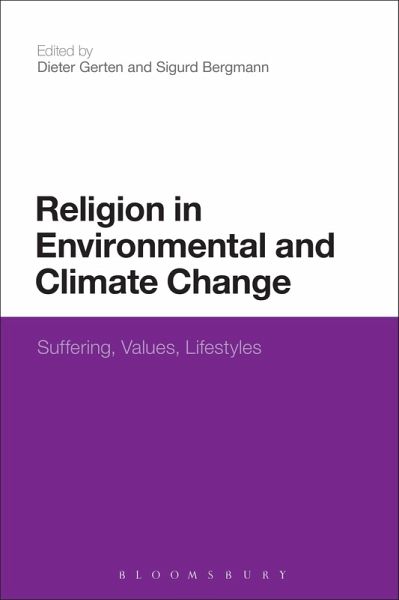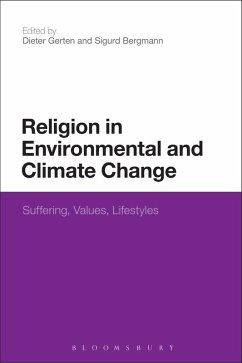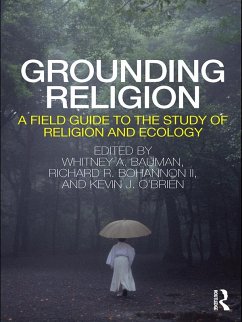
Religion in Environmental and Climate Change (eBook, ePUB)
Suffering, Values, Lifestyles
Redaktion: Gerten, Dieter; Bergmann, Sigurd
Versandkostenfrei!
Sofort per Download lieferbar
31,95 €
inkl. MwSt.
Weitere Ausgaben:

PAYBACK Punkte
16 °P sammeln!
Climate change and other global environmental changes deserve attention by the the humanities - they are caused mainly by human attitudes and activities and feed back to human societies. Focussing on religion allows for analysis of various human modes of perception, action and thought in relation to global environmental change. On the one hand, religious organizations are aiming to become "greener"; on the other hand, some religious ideas and practices display fatalism towards impacts of climate change. What might be the fate of different religions in an ever-warming world? This book gathers...
Climate change and other global environmental changes deserve attention by the the humanities - they are caused mainly by human attitudes and activities and feed back to human societies. Focussing on religion allows for analysis of various human modes of perception, action and thought in relation to global environmental change. On the one hand, religious organizations are aiming to become "greener"; on the other hand, some religious ideas and practices display fatalism towards impacts of climate change.
What might be the fate of different religions in an ever-warming world? This book gathers recent research on functions of religion in climate change from theological, ethical, philosophical, anthropological, historical and earth system analytical perspectives. Charting the spread from regional case studies to global-scale syntheses, the authors demonstrate that world religions and indigenous belief systems are already responding in highly dynamic ways to ongoing and projected climate changes - in theory and practice, for better or for worse. The book establishes the research field "religion in climate change" and identifies avenues for future research across disciplines.













